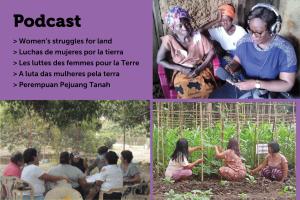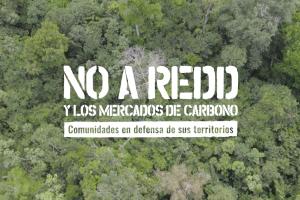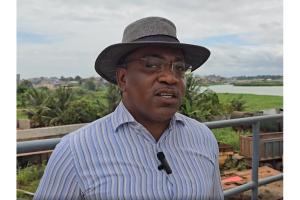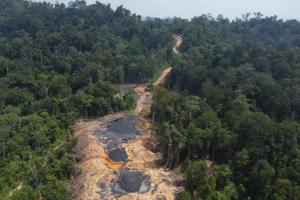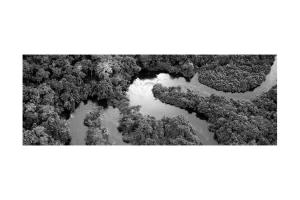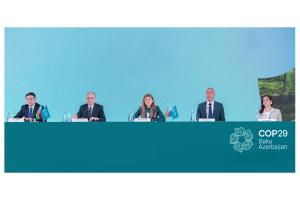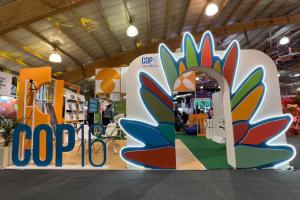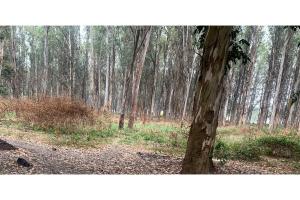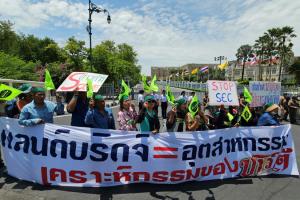Carbon offsetting and REDD
Reducing Emissions from Deforestation and Degradation (REDD+) has become the dominant international forest policy. Variations of REDD+ include Nature-Based Solutions and corporate pledges to achieve Zero Net Deforestation. In reality, though, deforestation continues, polluting companies use REDD+ offsets to avoid reducing their fossil fuel emissions, and zero-net deforestation pledges allow forests to be cleared in one area as long as an “equivalent” area is restored elsewhere.
Articles
19 March 2025
In the framework of International Women's Day, WRM is relaunching the podcast “Women’s struggles for land”, with stories from women’s collectives from the coastal area of Chiapas in Mexico, the Malen Chiefdom in Sierra Leone and the Kapuas river area of Central Kalimantan in Indonesia. While their stories appear quite different from each other at first glance, we find many commonalities and a strong connection between them.
Articles
19 February 2025
Invitamos este lunes 24 de febrero a participar del lanzamiento virtual para Latinoamérica de este documental sobre la resistencia de comunidades indígenas y tradicionales al avance de REDD y otros proyectos del mercado de carbono sobre sus territorios.
Multimedia
19 February 2025
Available in English soon.
Action alerts
19 December 2024
Bulletin articles
15 December 2024
In the province of East Kalimantan, the World Bank is supporting the Indonesian government’s first jurisdictional REDD programme. International conservationist NGOs, TNC and WWF, have been playing a key role in the preparation and execution of the programme. While they proclaim it to be a “success story” (1), this programme is full of contradictions. Available in Indonesian.
Bulletin articles
15 December 2024
The article deals with the creation of REDD+ as a “conservation fad”, which served as a parameter for the channeling of resources from investment banks and governments of the global north, immediately also arousing interest among corporations of the food and consumer goods sectors.
Other information
15 December 2024
Other information
15 December 2024
Bulletin articles
24 October 2024
The Conference of the Parties (COP16) to the Convention on Biological Diversity (CBD) is being held from October 21st to November 1st in Colombia. This initiative has failed in its goal of halting the alarming loss of biodiversity. For 30 years, instead of putting an end to extractive companies' destruction, the CBD's proposals have worsened the situation – through actions that have undermined both the sovereignty of Indigenous Peoples and communities, and their ability to remain in the territories they inhabit and protect.
Bulletin articles
24 October 2024
This article tells the story of a Podcast that is being jointly launched with Solidaritas Perumpuan, a feminist organisation from Indonesia. This espisode is the third in the series “Women’s struggles for land”, produced by WRM together with organisations from different countries. This one tells the story of women's resistance to oil palm plantations, REDD and a large-scale project for food production (Food Estate) in three villages in Central Kalimantan.
Bulletin articles
24 October 2024
In Congo-Brazzaville, tree planting projects intended for carbon markets have proliferated over the past four years. This concerns large-scale developments of monocultures initiated by oil companies under the seductive term of carbon neutrality and promises of job creation for communities. But in reality, they are neither a solution to the climate crisis nor a benefit for the communities of Congo.
Bulletin articles
24 October 2024
With World Bank support, the Thai government is moving quickly to implement its ‘climate policy’ based on carbon offsetting through the use of so-called ‘green areas’. These areas are projected to cover no less than half of the country´s area. Yet hidden behind this ‘green’ discourse is an economic policy that is heavily reliant on the continued use of fossil fuels. (Available in Thai).
